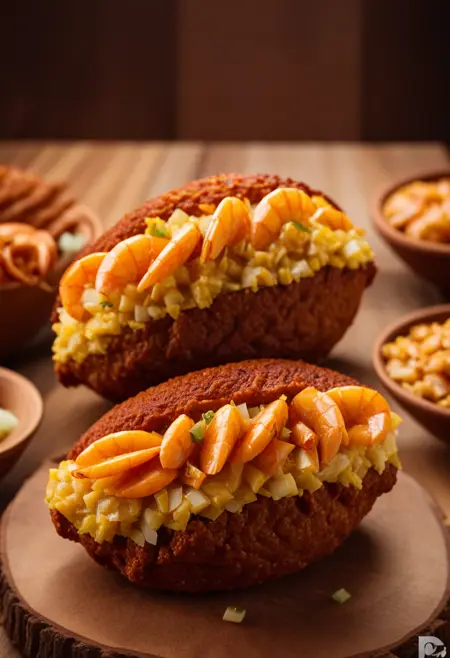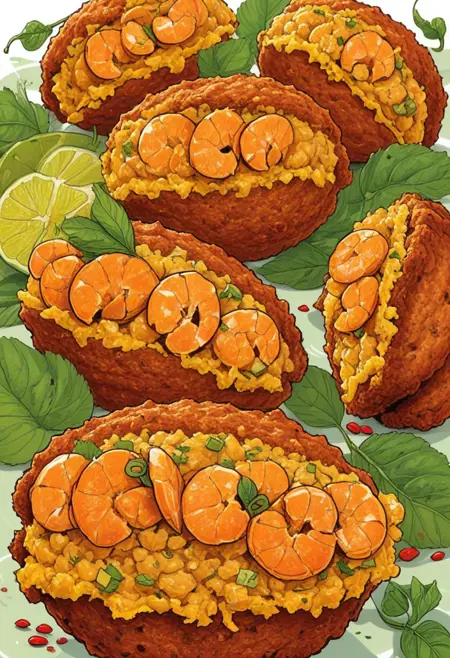Acarajé - Brazil XL
세부 정보
파일 다운로드
이 버전에 대해
모델 설명
가중치: 0.7 - 1.2
키워드: acarajé; acaraje
Àkàrà (요루바어) (영어: 콩 케이크; 하우사어: kosai; 포르투갈어: acarajé (포르투갈어 발음: [akaɾaˈʒɛ]))는 나이지리아, 토고, 베냉의 요루바랜드에서 유래한 콩 또는 콩류(검은눈콩)로 만든 튀김입니다. 이 요리는 서아프리카, 카리브해, 브라질 요리 전역에서 발견됩니다. 이 요리는 전통적으로 브라질 북동부의 바이아 주, 특히 사바도르 시에서 볼 수 있습니다. 아카라제는 캄도블레 종교에서 신들에게 바치는 종교적 제물이자 거리 음식으로도 사용됩니다. 이 요리는 서아프리카에서 온 노예들이 가져왔으며, 현재도 나이지리아, 가나, 토고, 베냉, 말리, 감비아, 부르키나파소, 시에라리온 등지에서 다양한 형태로 발견됩니다.
Àkàrà는 요루바어로 "과자" 또는 그 자체의 요리를 의미합니다. 브라질어 "acarajé"라는 용어는 요루바어의 "àkàrà"(빵)와 "onje"(음식), 또는 "àkará"(둥근 과자)와 "je"(먹다)의 조합에서 유래했습니다. 마르시오 데 자군은 이 단어가 요루바어 "àkàrà n'jẹ", 즉 "아카라를 먹으러 오세요"에서 유래했으며, 이 문구는 거리에서 아카라제를 파는 여성들이 고객을 부르는 데 사용되었다고 주장합니다.
크레딧
설명은 위키백과에서 수정되었습니다: https://en.wikipedia.org/wiki/Akara.
이미지는 가중치 1.0과 Sintetico XL을 기본 모델로 사용하여 생성되었습니다.










